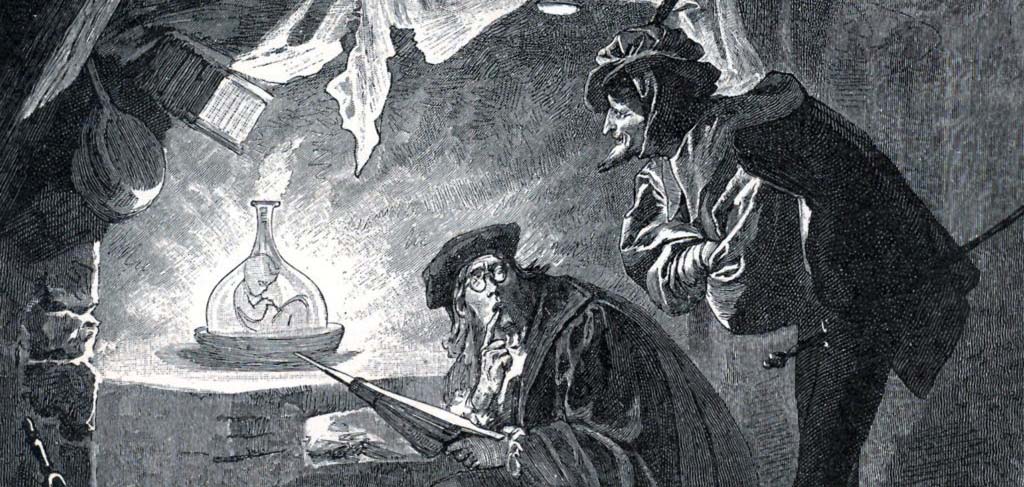Johann Wolfgang von Goethe is one of the most influential figures in European cultural heritage. Many consider Goethe’s Faust to be the greatest work of German literature. Faust is a successful man. It appears he has everything to be happy. Yet, Faust is deeply dissatisfied and depressed. He is not in peace and he can’t find joy in his life. Faust is convinced that the key is in achieving more success and in being able to experience more pleasures in life. If he can do so then certainly he will be able to find fulfillment and happiness. In the midst of this desperate state of mind and spiritual unrest, he makes a deal with the devil. The devil would give him everything his heart desired, but at the end of the term of their agreement, the devil would gain his soul. Faust agrees. The devil keeps his promise and gives him everything the world has to offer, but it brings only misery and death to everyone close to Faust. Worst of all, the devil owned his soul now.
What is the source of joy for us? What brings meaning and fulfillment to our relationships and families? Too often, we too, like Faust, might be tempted to think that the key is to achieve more success, more fame and recognition. Too often, we too might focus on ourselves, our abilities and on things we have and we don’t. And every time we do so, every time when our focus and perspective of life and joy does not include and incorporate God and focuses solely on ourselves, we miss the point. We condemn ourselves and our loved ones into a dangerous loop of misery and suffering. No amount of success, material wealth and security can give us joy because God alone is the source of true joy, inner-peace and unshaken happiness. Therefore, it is important for us to strive and expand the spiritual horizons of our lives beyond self-focus.
Today’s lectionary reading from the Gospel of St. Luke is a parable about two men, a Pharisee and a tax collector, who went to the temple to pray. The Pharisee in his prayer thanks God for not being like the others, but being a good and noble man of God. He fasts, prays and gives a tenth of his income to the temple. Seemingly he does everything right, yet his prayer and his faith is all about him. He is focused on himself alone and even God has no place and role in his prayer and faith. On the other hand, the tax collector’s prayer is focused completely on God. And it is exactly this man and his prayer that Christ and the Gospel bring to our attention as a reminder of humility, and also about the importance of being centered and focused on God in our lives and faith.
To be self-motivated and to have a vision and dream for your life are good things. But to be wholly self-focused is simply an unsustainable way of living life. It is a path that will never lead to inner joy or happiness. Human happiness can only be found in people around us, in a life that is centered and focused on Christ, in our ability to expand the boundaries of our plans, decisions and hopes to include Christ and the interest of people around us always and in things.


